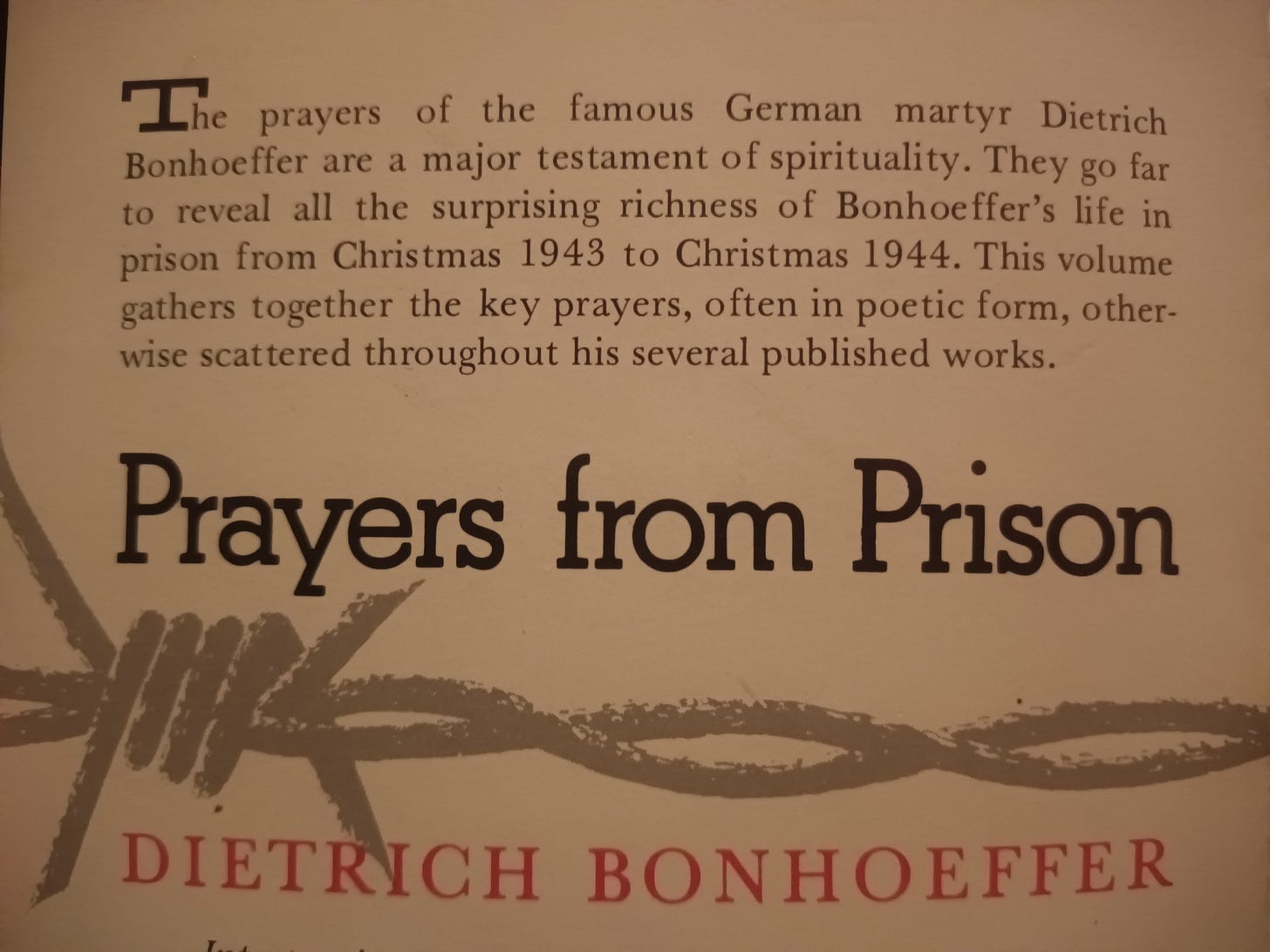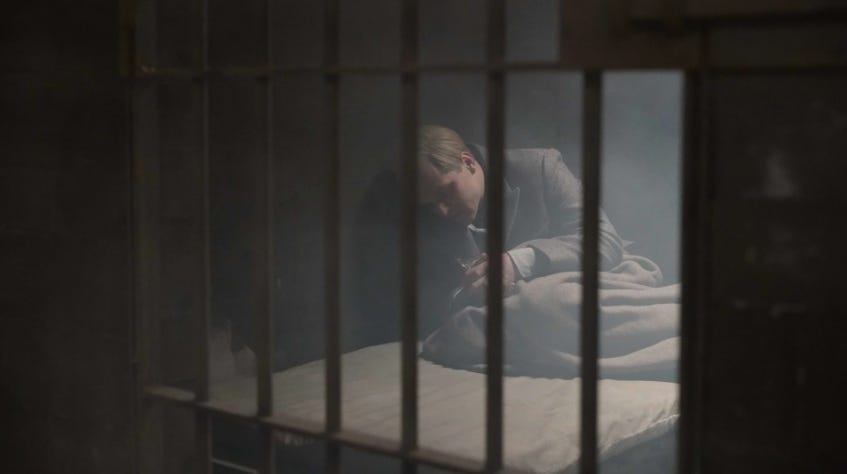Bonhoeffer's Prison Poetry (and Prayers)
Eleven Poems Were Smuggled Out of Prison Before Bonhoeffer's Martyrdom in 1945
On the latest Prison Pulpit episode of the China Compass podcast, I shared the following “prison poem” from the German theologian and martyr, Dietrich Bonhoeffer.
The poem, “Who Am I?”, comes from a little book called Prayers from Prison. I have included below a portion of the Introduction and Commentary by Johann Christoph Hampe.
[E]leven poems [of Dietrich Bonhoeffer] are all of his that we possess, and they all come from the time when he was in prison. He had written poems in his youth, but this talent, like his much greater gifts in music-making, retreated into the background in favour of his more important concern, his one great aim in life. Nevertheless, throughout his life he was a passionate reader. He read quickly and therefore assimilated a great deal. . .
Of course, men increasingly meant more to him than books, and he read voraciously in order to understand his contemporaries better. After all, it was for them that he worked at theology and it was among them that he wanted to be a pastor. A master of serious conversation, cheerful banter and letter-writing alike, he needed his contemporaries in order to understand himself. . .
The time when he was most engaged in literature and when his reading was most extensive was during the period of almost two years which he was compelled to spend in Hitler's prisons. He was executed on 9 April 1945, after sentence had been passed on him by a hastily summoned emergency court, but until that time he had merely been detained for questioning: formally, he had the rights of a citizen, and sometimes these had been respected.
During these last months he at least had time. He was disciplined enough to use it for indefatigable reading and extensive writing. During these oppressive months he gave us of his best: it was smuggled out and brought to safety piece by piece by his friend Eberhard Bethge and his relatives.
It was his best, although because of the disturbed times and the wealth of perspectives opening up to him it was presented as sketches, outlines, and raw material. His letters suggest plans for entire books, asking questions to which he could find no replies in his prison cell. This is the category into which his poems also fall. . .
Bonhoeffer added this poem (Who Am I?) and the one which follows it (Night Voices in Tegel) to one of the great theological letters which still preoccupy scholars today, that of 8 July 1944.
It expounds only one of the rich ideas in this letter by means of his own person. It measures the biblical picture of man by the experience of the prisoner. Am I the person they see from the outside, or the one who knows himself to be completely different in his innermost being?
WHO AM I?
Who am I? They often tell me I would step from my cell's confinement calmly, cheerfully, firmly, like a squire from his country house.
Who am I? They often tell me I would talk to my warders freely and friendly and clearly, as though it were mine to command.
Who am I? They also tell me I would bear the days of misfortune equably, smilingly, proudly, like one accustomed to win.
Am I then really all that which other men tell of?
Or am I only what I know of myself, restless and longing and sick, like a bird in a cage,
struggling for breath, as though hands were compressing my throat,
yearning for colours, for flowers, for the voices of birds,
thirsting for words of kindness, for neighbourliness,
trembling with anger at despotisms and petty humiliation,
tossing in expectation of great events,
powerlessly trembling for friends at an infinite distance,
weary and empty at praying, at thinking, at making,
faint, and ready to say farewell to it all?
Who am I? This or the other?
Am I one person today, and tomorrow another?
Am I both at once? A hypocrite before others, and before myself a contemptibly woebegone weakling?
Or is something within me still like a beaten army, fleeing in disorder from victory already achieved?
Who am I?
They mock me, these lonely questions of mine. Whoever I am, thou knowest, O God, I am thine.
Dietrich Bonhoeffer, June 1944






